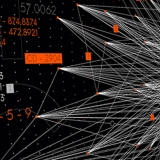EU context
I responsabili delle politiche devono acquisire conoscenze che aiutino ad affrontare le questioni riguardanti una regolamentazione efficace, le modalità per garantire la protezione sociale nel suo senso più ampio e la necessità di bilanciare le esigenze delle imprese, delle società e degli individui nello sfruttare il grande potenziale della digitalizzazione.
La Commissione europea ha adottato la sua strategia per il mercato unico digitale in Europa nel 2015, indicandola come una delle sue priorità politiche. La strategia può creare opportunità digitali per i cittadini e per le imprese e ha lo scopo di rafforzare la posizione dell’UE tra i leader mondiali dell’economia digitale. È intesa a migliorare l’accesso alle informazioni, a creare posti di lavoro per coloro che abbiano le giuste competenze digitali e a trasformare i servizi pubblici. In un contesto caratterizzato dall’espansione dell’economia collaborativa in tutta l’UE, la Commissione si adopera per incoraggiare lo sviluppo di servizi nuovi e innovativi, garantendo nel contempo adeguate misure di protezione. La comunicazione del 2016 della Commissione sull’agenda europea per l’economia collaborativa chiarisce le regole e le raccomandazioni politiche in questo settore per i cittadini, le imprese e gli Stati membri.
Il lavoro di Eurofound
Eurofound analizza le implicazioni di più ampio raggio per le condizioni di lavoro e per la regolamentazione in materia di lavoro e altri aspetti legati alle dimensioni e alla portata crescenti delle tecnologie digitali per il mercato del lavoro.
In particolare è in esame l’impatto sull’occupazione delle trasformazioni tecnologiche nei servizi. Inoltre si analizzano le implicazioni dell’economia basata sulle piattaforme, in particolare il lavoro organizzato via piattaforme online, per il mercato del lavoro. Proseguono altresì le ricerche sulle condizioni di lavoro e di occupazione dei lavoratori mobili basati sulle TIC.
Verrà studiata la natura del lavoro e dell’occupazione nell’era digitale, con particolare attenzione ai seguenti elementi:
Contributi chiave
Una relazione realizzata congiuntamente con l’Organizzazione internazionale del lavoro (OIL) sul lavoro «in qualsiasi momento, ovunque» ha esaminato l’impatto del telelavoro e del lavoro mobile basato sulle TIC su determinati elementi delle condizioni di lavoro.
La serie di seminari della Fondazione (FSS) di Eurofound fornisce a governi, sindacati e datori di lavoro l’opportunità di confrontarsi sull’elaborazione delle politiche sociali, occupazionali e in materia di lavoro dell’UE. Nel 2016 i seminari si sono incentrati sull’impatto della digitalizzazione sul lavoro e sullo sviluppo di programmi nazionali per una migliore attuazione dei cambiamenti digitali.



































